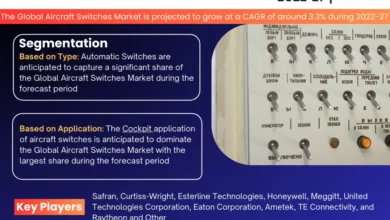For decades, waste management has been an industry shrouded in tradition. We dutifully wheel our bins to the curb, a system that seems as unchanging as the cycle of trash itself. But beneath the surface, a revolution is brewing. Waste Management Software is emerging as a powerful tool, transforming how we handle our waste and unlocking a surprising array of benefits.
This software transcends the simple act of scheduling pickups. It’s a comprehensive platform that streamlines operations, boosts efficiency, and paves the way for a more sustainable future. Let’s delve into the power of Waste Management Software and explore how it’s changing the way we deal with trash.

Optimizing Routes and Saving Costs
One of the most immediate advantages of Waste Management Software is its ability to optimize collection routes. Traditional methods often rely on static schedules, leading to inefficient loops and wasted fuel. Software, on the other hand, utilizes real-time data, such as bin fullness sensors and GPS tracking. This allows for dynamic route planning, minimizing travel time and fuel consumption. Imagine garbage trucks strategically navigating only to overflowing bins, significantly reducing operating costs for waste management companies.
Empowering Informed Decisions
Waste Management Software doesn’t just optimize routes; it generates valuable data. By tracking waste volume across different locations, the software identifies areas with high or low disposal needs. This empowers businesses and municipalities to make informed decisions about bin placement, collection frequency, and even recycling initiatives. Restaurants with high food waste, for example, can be equipped with larger bins and more frequent pickups, while low-traffic office buildings might benefit from less frequent collection.
Promoting Transparency and Accountability
Waste Management Software fosters transparency in the waste management process. Real-time data on collection routes and schedules keeps residents and businesses informed. Additionally, features like electronic manifests track the movement of waste from collection to disposal, ensuring compliance with regulations. This transparency fosters trust and accountability within the waste management system.
Engendering Environmental Sustainability
By optimizing operations and promoting informed decision-making, Waste Management Software ultimately contributes to a more sustainable future. Reduced fuel consumption due to optimized routes lowers greenhouse gas emissions. Additionally, data insights can inform recycling programs and divert waste from landfills. This not only reduces the environmental impact of overflowing landfills but also conserves resources and promotes responsible waste management practices.
Engaging the Community
Waste Management Software isn’t just for waste haulers; it empowers residents and businesses to be active participants. Mobile apps connected to the software can provide residents with collection schedules, reminders for sorting recyclables, and even educational resources on waste reduction strategies. This fosters a sense of community ownership and responsibility for waste management.
The Future of Waste Management: Embracing Innovation
The world of waste management is on the cusp of a technological revolution. As technology advances, exciting possibilities emerge. The integration of Internet of Things (IoT) devices is one such example. Sensors embedded in bins can provide real-time data on fullness levels, allowing for even more efficient collection strategies. This, coupled with Artificial Intelligence (AI), can further optimize routes and predict waste generation patterns.
Furthermore, the rise of RFID Waste Management Solutions holds immense potential. With RFID tags attached to bins, waste collection becomes even more streamlined. Trucks equipped with RFID readers can automatically log bin identification and contents, eliminating the need for manual data entry and ensuring accurate billing. This technology also opens doors for personalized waste management solutions, tailored to the specific needs of individual households or businesses.

Conclusion
Waste Management Software is no longer a futuristic concept; it’s here, revolutionizing the way we handle our trash. From optimizing routes to promoting sustainability, the benefits are undeniable. As we embrace new technologies like IoT and RFID Waste Management Solutions, the future of waste management promises to be not just efficient, but also environmentally responsible. So, the next time you wheel your bin to the curb, remember – it’s not just trash you’re discarding, it’s an opportunity to embrace a more sustainable future powered by the magic of Trash Tech.


